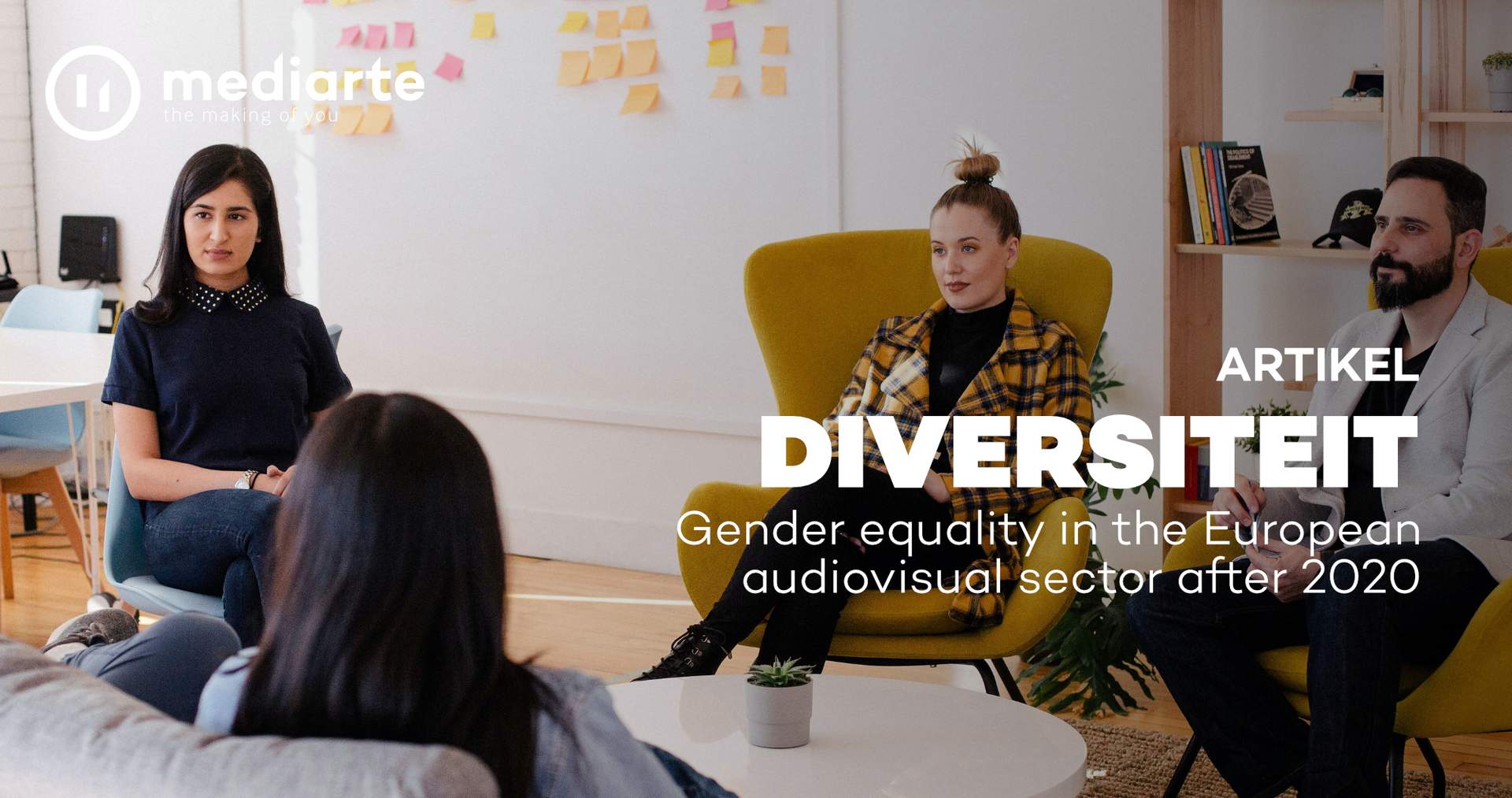
In May 2016, the Swedish Film Institute launched the campaign “50/50 by 2020” at the Cannes Film Festival.
Four years later, on, the online conference ”Are We There & What Is Next?” dedicated to gender equality in the European audiovisual sector took place on 11th December 2020. The online meeting was co-organised by EWA network (European Women’s Audiovisual Network) and EURO-MEI (UNI Europa - Media, Entertainment & Arts), in collaboration with EFAD (European Film Agency Directors Association) and Cineuropa.
The initiative aimed at taking stock of the topic of gender equality on the ground through the testimonies of audiovisual professionals, and at discussing future commitments and strategies with EU policymakers and key sector stakeholders.
Several speakers participated. Among others, Mrs Graça Fonseca, Portugal’s Minister of Culture, confirmed that enhancing the role of women in the audiovisual industry will be on the agenda of the Portuguese presidency of the Council of the EU during the first semester of 2021. She also said that screenings of films by Portuguese women filmmakers will be organised in cooperation with the Cinematek in Brussels during the presidency.
Two panels followed, the first about the topic of equality on and off screen in the European audiovisual sector, “Equality on and off screen in the European audiovisual sector : the state-of-play” was moderated by Tamara Tatishvili, EWA network’s strategy and partnerships manager. The second panel, ”What action plan for 2021 onwards”, was presented by Daphne Tepper, Director of EURO-MEI.
Among the speakers, we noted the intervention of the Kosovar DoP, Sevdije Kastrati. She talked through the beginning of her career and described her efforts to look for women ready to join her team, in a country were crews are still male-dominated.
For his part, Geoffroy Grison, French screenwriter and consultant stressed that the figures seem depressing by their tendency to remain stable since a few years, noting that in the cinema sector the process takes a long time and that today's work will show perhaps fully its effects with the next generation. The next speaker, the German producer Jonas Dornbach discussed his feeling of “living in a bubble” as roughly 80% of his productions are directed by women, and he advocated for equal funding & equal pay for the next 5 years.
The second panel, was dedicated to the plan of action for in 2021 and onwards”
Anna Serner, CEO of the Swedish Film Institute and chair of the EFAD Gender & Inclusion Working Group, pointed out that the future strategy should be “stop talking and start doing”. In particular, she noted the some positive reactions of the institutional responses. Eurimages, for example, despite hosting many members of the Council of Europe not pleased with our work on gender equality, has provided a clear, open commitment to the cause.” Talking about their efforts, Eurimages’ executive director Roberto Olla replied: “We did not reach the 50/50 target in 2020, we’re at 37-38%. However, when we started “counting” in 2012, only 7% of Eurimages’ total support was granted to films directed by women.” Right after, Karim Ibourki, chairman of the Belgian CSA and Vice-President of ERGA, touched upon CSA’s recent study on gender equality and stressed on the importance of sharing good practices at European level.
Meanwhile, FERA’s chief executive Pauline Durand-Vialle focused on the issue of the gender pay gap. In general terms, Durand-Vialle noted that there is a rather equal start for men and women, who are at the beginning of their careers essentially low income workers and then, once their careers kick off, a clear glass ceiling for women emerges, followed by another reduction of said divide in later stages.
The panel was rounded off by the contribution by Sarah Brunet, policy officer for the European Commission’s Directorate-General for Communications Networks, Content and Technology, who illustrated some of the most important institutional initiatives implemented to pursue the gender equality agenda and fight discrimination. More specifically, the next Media Programme will include incentives to better promote gender equality, the obligation to abide by European values, talents promotion in their diversity, more training and mentoring initiatives.